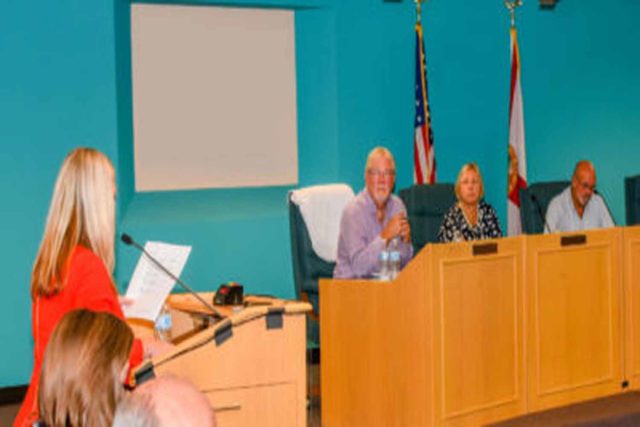How does representation before administrative and regulatory governing bodies affect community associations?
Effectively navigating intricate administrative and regulatory procedures, particularly concerning the Florida Department of Business and Professional Regulation (DBPR), is crucial for community associations. These procedures encompass a variety of laws, regulations, and procedural intricacies that dictate how community associations operate within Florida.
Representation before administrative and regulatory governing bodies, such as the DBPR, is often essential for community associations to safeguard their interests, ensure legal compliance, and address disputes effectively. Such representation involves legal professionals adept at interpreting and applying relevant statutes, codes, and regulations pertinent to community association management.
Need help regarding representation before administrative and regulatory governing bodies? Schedule your consultation today with a top community associations attorney.
In Florida, which laws and regulations apply to administrative or regulatory matters?
In Florida, several laws and regulations apply to administrative and regulatory governing body matters, including:
- Community Association Management Statutes: Establish the Regulatory Council of Community Association Managers within the DBPR and provide licensing and other related requirements for community association managers and community association management firms.
- DBPR Rules: Set forth by the DBPR’s Regulatory Council of Community Association Managers, these rules relate to professional practice standards, licensure examinations, and continuing education requirements for community association managers and management firms.
- Florida’s Condominium Act, Cooperative Act, and Homeowners’ Association Act: Collectively govern condominium, cooperative, and homeowners’ associations by delineating rights and obligations, setting forth procedures for the conversion of existing improvements, and charging the DBPR’s Division of Florida Condominiums, Timeshares, and Mobile Homes with certain responsibilities.
What are common issues regarding administrative or regulatory matters that lead to litigation?
The following issues are among the most common in actions regarding administrative and regulatory governing body matters:
- Misinterpretation of Regulations: Community associations may face litigation due to misinterpreting complex regulatory frameworks set forth by the DBPR, leading to non-compliance with licensing and other requirements.
- Failure to Maintain Proper Documentation: Inadequate record-keeping practices can result in disputes, as community associations may struggle to provide evidence of compliance with DBPR regulations during legal proceedings.
- Neglecting Due Diligence: Failure to conduct thorough due diligence before engaging in regulatory matters can leave community associations vulnerable to unforeseen legal challenges and subsequent litigation.
- Inadequate Communication with Stakeholders: Poor communication with stakeholders, including residents, board members, and regulatory authorities, can exacerbate disputes and escalate matters to litigation.
- Delayed Responses to Regulatory Inquiries: Ignoring or delaying responses to inquiries from regulatory authorities can escalate minor issues into full-blown legal conflicts, resulting in costly litigation.
- Lack of Legal Representation: Community associations may face challenges navigating the complexities of administrative procedures without competent legal representation, increasing the likelihood of legal disputes.
We are value-based attorneys at Jimerson Birr, which means we look at each action with our clients from the point of view of costs and benefits while reducing liability. Then, based on our client’s objectives, we chart a path to seek appropriate remedies.
To determine whether your unique situation may necessitate litigation, please contact our office to set up your initial consultation.
What steps should community associations take to minimize the risk of litigation over administrative or regulatory matters?
To minimize the risk of litigation over administrative and regulatory governing body matters, community associations can implement the following strategies:
- Proactive Compliance Measures: Establish robust compliance protocols tailored to statutory requirements and DBPR regulations, ensuring adherence and preemptively addressing potential compliance pitfalls.
- Comprehensive Record-Keeping: Maintain meticulous records of all interactions with regulatory authorities, including correspondence, permits, licenses, and inspection reports, to demonstrate compliance and mitigate disputes.
- Transparent Communication: Foster open and transparent communication with stakeholders, including residents, board members, and regulatory agencies, to address concerns promptly and prevent misunderstandings.
- Timely Responses to Inquiries: Promptly respond to inquiries and requests for information from regulatory authorities, demonstrating cooperation and a commitment to compliance to avoid escalation to litigation.
- Continual Education and Training: Invest in ongoing education and training for staff and board members to stay abreast of evolving regulatory requirements and best practices, minimizing the likelihood of compliance lapses.
- Regular Legal Consultations and Legal Representation: Seek guidance from experienced legal professionals specializing in community association law to proactively address regulatory issues and mitigate legal risks before they escalate.
Frequently Asked Questions
Can community associations represent themselves before the DBPR without legal counsel?
Community associations can represent themselves before the DBPR, but doing so carries inherent risks, including potential inadequate legal advocacy and misinterpretation or lack of awareness of regulations. Engaging experienced legal counsel specializing in community association law is advisable to navigate complex regulatory matters effectively.
What are the consequences of non-compliance with DBPR regulations?
Non-compliance with DBPR regulations can lead to various consequences, including fines, penalties, sanctions, legal disputes, and damages to reputation.
How often should community associations conduct compliance audits related to DBPR regulations?
Community associations should conduct regular compliance audits, at least annually, to ensure ongoing adherence to DBPR regulations. The frequency may vary depending on the size of the community association, the complexity of the applicable regulatory requirements, and any changes in relevant laws or regulations.
Have more questions about a situation related to representation before administrative and regulatory governing bodies?
Crucially, this overview of representation before administrative and regulatory governing bodies does not begin to cover all the laws implicated by this issue or the factors that may compel the application of such laws. Every case is unique, and the laws can produce different outcomes depending on the individual circumstances.
Jimerson Birr attorneys guide our clients to help make informed decisions while ensuring their rights are respected and protected. Our lawyers are highly trained and experienced in the nuances of the law, so they can accurately interpret statutes and case law and holistically prepare individuals or companies for their legal endeavors. Through this intense personal investment and advocacy, our lawyers will help resolve the issue’s complicated legal problems efficiently and effectively.
Having a Jimerson Birr attorney on your side means securing a team of seasoned, multi-dimensional, cross-functional legal professionals. Whether it is a transaction, an operational issue, a regulatory challenge, or a contested legal predicament that may require court intervention, we remain tireless advocates at every step. Being a value-added law firm means putting the client at the forefront of everything we do. We use our experience to help our clients navigate even the most complex problems and come out the other side triumphant.
If you want to understand your case, the merits of your claim or defense, potential monetary awards, or the amount of exposure you face, you should speak with a qualified Jimerson Birr lawyer. Our experienced team of attorneys is here to help. Call Jimerson Birr at (904) 389-0050 or use the contact form to schedule a consultation.

We live by our 7 Superior Service Commitments
- Conferring Client-Defined Value
- Efficient and Cost-Effective
- Accessibility
- Delivering an Experience While Delivering Results
- Meaningful and Enduring Partnership
- Exceptional Communication Based Upon Listening
- Accountability to Goals











